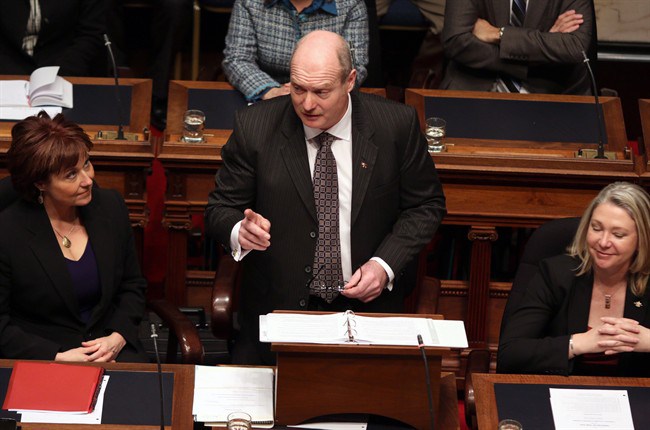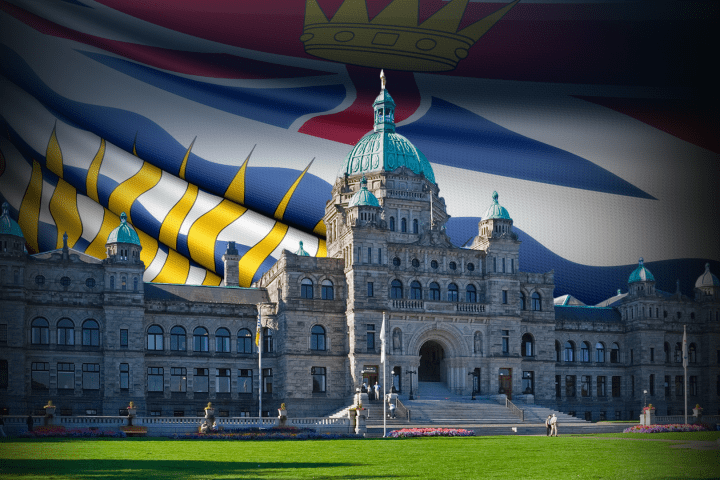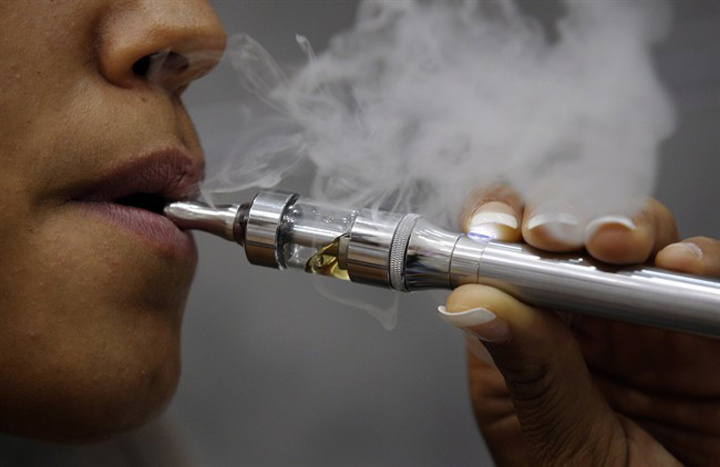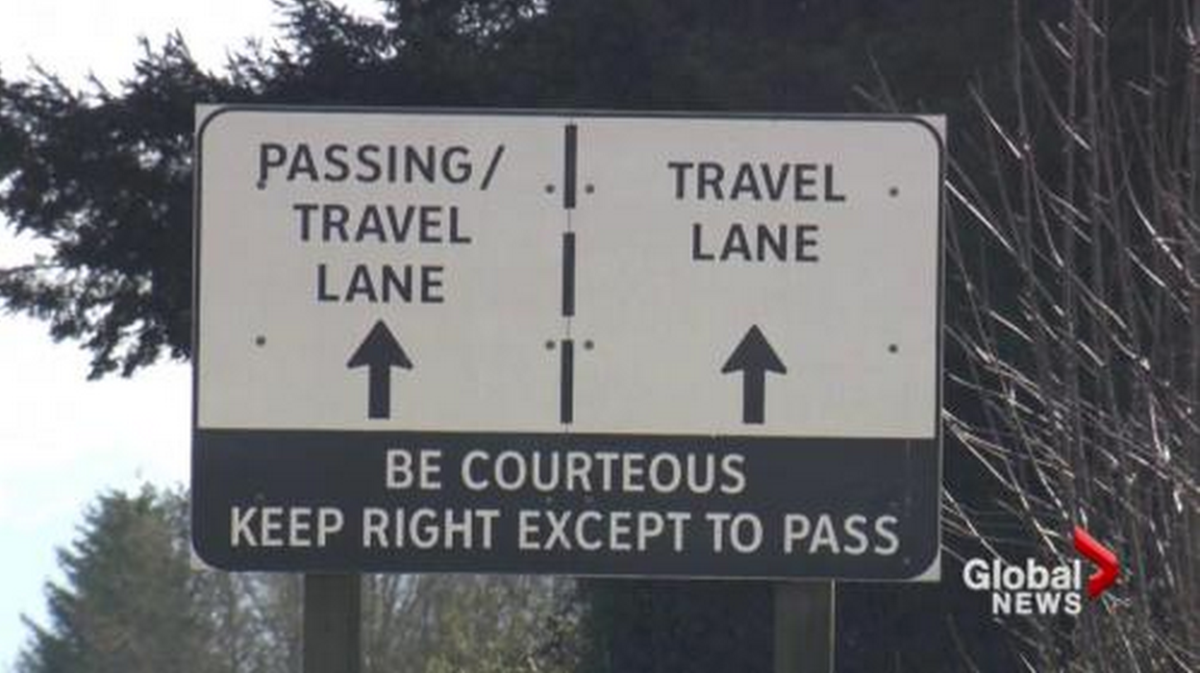There’s just one week left of provincial politicians sitting in Victoria before the summer break.

The spring session of the legislature ends this Thursday, after 12 weeks of debates, questions periods, and laws passed.
It means there’s just four days left for new bills to be to be introduced until the legislature returns on October 5—unless, of course, the government convenes an emergency session.
To date, 23 government bills have been passed this year. You can read the whole list here—but these are 10 (or 12, technically) that you might find interesting.
1. Passed a budget

Technical name: Bill 10—Budget Measures Implementation Act.
What it did: Allowed for the passage of this year’s budget, which projected a surplus of $284 million.
READ MORE: B.C. tables balanced budget
The budget ended the controversial practice of “clawing back” income assistance payments when people receive child-support payments. However, the NDP criticized the budget overall, particularly because it raised health care premiums while giving B.C.’s highest earners a two per cent tax cut.
2. More powers for WorkSafe to punish companies

Technical name: Bill 9—Amendments to the Workers Compensation Act.
What it did: Following two separate sawmill explosions that killed four people in 2012, the government introduced new laws that allow prosecution of employers whose actions seriously injure or kill workers.
16×9: The story behind the deadly B.C. sawmill explosions
The amendments to the Workers Compensation Act, based on recommendations made by WorkSafe BC in 2012, also gives that organization power to shut down facilities or issue immediate fines for failing to comply with regulations.
3. Changed regulations around professional development for teachers
Technical name: Bill 11—Amendments to the Education Statutes Act.
What it did: Any peace that forged between the government and the B.C. Teachers’ Federation when they reached a new collective agreement seemed to go by the wayside this session.
Not only did the government tell school boards to find $54 million in administrative savings over the next two years, they introduced Bill 11, which would regulate professional development for teachers.
READ MORE: Education bill proposes new Pro-D Day standards for teachers
The legislation has been heavily criticized by teachers, who have raised the possibility the government would use it to remove local school board autonomy.
BALDREY: Liberals take another swipe at B.C.’s teachers
4. Gave ICBC more power as a debt collector

Technical name: Bill 13—Amendments to the Finance Statutes Act
What it did: ICBC will be allowed to withhold issuing or renewing a driver’s license if a person is more than a year behind in paying off their student loans. The new law will also let ICBC collect on unpaid court fines.
The law caused a fierce outcry by many student groups, but the provincial government said that student loans are “tax dollars”, and that the bill would help collect an extra $3 million each year.
5. Protected more parks
Technical name: Bill 8—Amendments to the Protected Areas of British Columbia Act.
What it did: The government added more than 1500 hectares of land to B.C.’s parks when they amended this bill, which lays out what areas of the province are protected.
Overall, 1,219 hectares of land was added to West Arm Park in the Kootenays, 109 hectares was added to Bodega Ridge Park on Galiano Island, and 38 hectares was added to the water around Bodega Ridge.
In addition, 395 hectares on Quadra Island, which was previously owned by a logging company before the government bought it for $5.85 million in 2014, was officially made a protected area.
6. Regulated e-cigarettes
Technical name: Bill 14—Amendments to the Tobacco Control Act.
What it did: The act now treats e-cigarettes the same way as tobacco—illegal in public spaces, workplaces and for sale to anyone under 19.
READ MORE: B.C. to ban e-cigarette sales to youth
“We don’t know what’s in those e-cigarettes,” Health Minister Terry Lake told reporters after he introduced the legislation.
“Our duty as government is to protect young people from potential harm and given the lack of information on what’s in these products, their potential health effects, and that this may serve as a gateway to smoking, I think we have a legitimate right to take this step,” he added.
7. Cracked down on left-lane hogs
Technical name: Bill 15—Amendments to the Motor Vehicle Act.
What it did: Police now have more power to ticket slow-moving drivers who aren’t passing anyone in the left lane.
When he introduced the legislation, Transportation Minister Todd Stone said data from ICBC and police agencies shows a number of collisions are partly caused by frustration stemming from people not using the left lane to pass anyone.
Driving pet peeves: B.C. to crack down on left-lane hogs
“People who tend to camp out in that left lane and seem to think the left lane and the right lane are there to serve the same purpose,” said Stone. “They’re not. In fact the law today is pretty clear in terms of the left lane being there for passing.”
8. Banned fake service dogs

Technical name: Bill 17—Guide Dog and Service Dog Act.
What it did: As the number of privileges afforded to guide and service dogs has grown over the decades, so too has the number of owners pretending their dogs are eligible.
READ MORE: New rules proposed for B.C. residents who use guide or service dogs
To that end, the province passed this legislation, which would give identity cards to all dogs trained by accredited schools. Once new regulations come into effect, guide and service dogs will be required to be trained by a facility accredited by Assistance Dogs International (ADI) or the International Guide Dog Federation (IGDF).
9. Put in place new LNG regulations
Technical name: Bill 23—Amendments to the Miscellaneous Statutes Act, and Bill 26—Amendments to the Liquefied Natural Gas Income Tax Act
What it did: As the government continues to inch closer to having a LNG project underway, they passed two bills to manage the tax framework around the industry.
Bill 23 includes an amendment to the Natural Gas Development Act that will allow the ministry to directly negotiate rates and sign agreements with gas producers, rather than go through the legislature for approval. Meanwhile, Bill 26 finalized the LNG tax approved last year, clarifying rules around the obligations of companies, and the powers of government in collecting the tax.
10. Made their final liquor reforms (for now)
Technical name: Bill 22—Special Wine Store Licence Auction Act, and Bill 27— Liquor Control and Licensing Act.
What it did: The many, many announcements the government made surrounding its liquor reforms petered out this year, but there were still two pieces of legislation passed this session relating to the changes.
Bill 22 allows the government to auction out dormant wine licenses to the highest bidder. These licenses are for B.C. wine only, and the auction will be for grocery stores.
Meanwhile, Bill 27 “modernizes outdated provisions” in the Liquor Control and Licensing Act, according to the government, and makes it easier for special event permits and special occasion licenses to be approved.
After reading all this, you may need a drink too.
– With files from The Canadian Press










Comments